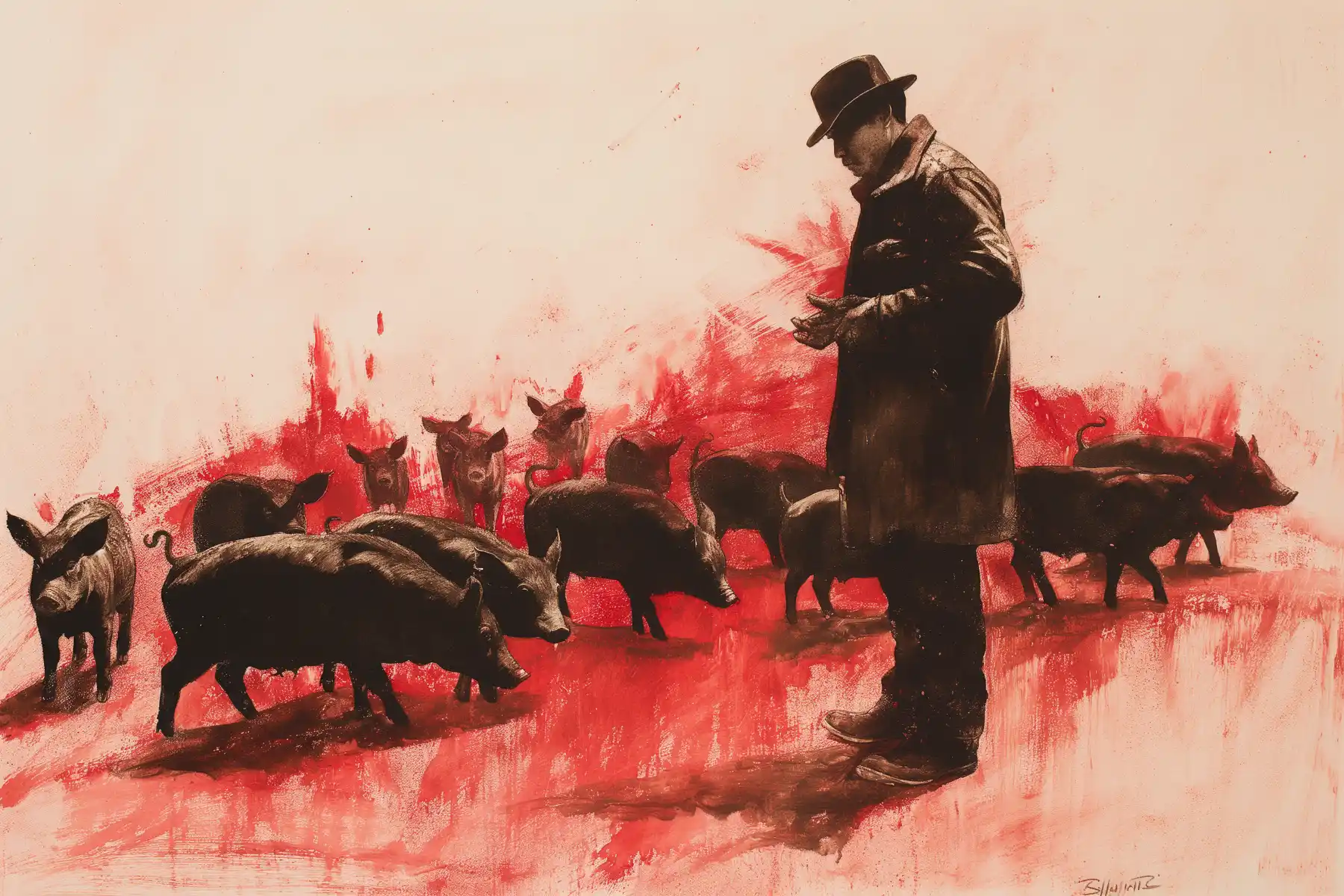Clutching Swine Before Pearls
Divisions in the UMC over the inclusion of LGBTQ+ persons in the church highlight the different standards we use to decide where we belong.

A couple weeks ago the United Methodist Church removed language from their governing documents that excluded people from leadership based on their sexuality. With these changes, the UMC suddenly became open to – though not entirely affirming of – people who are publicly LGBTQ+. Over the past few years, thousands of churches that wanted to keep the exclusive language left the denomination, opening the door for the votes to pass.
For many of the United Methodists who remain, the votes were a cause for celebration, but that was far from a unanimous response. The people in United Methodist pews across the country still carry a wide range of perspectives and feelings on LGBTQ+ inclusion in the church.
In many of those churches, the families who make up the congregation are asking themselves what these changes mean for them, for the future of the denomination, and for their sense of belonging in their local congregation. These people are leaders in their community. They have raised their children in this church. They have given their time, money, and heart to this church. They care deeply for it and for the people in it.
Yet over the coming weeks and months, they will ask themselves can continue to invest themselves in this community that they believe has compromised its theological convictions. These conversations will not be easy for them, and some of them will choose to leave. They will shed countless tears over their decision, lose sleep over it, and likely lose friends who feel like family over it. Truthfully, there is a lot to admire in the dedication they will show to their convictions.
On a deeply personal level, I understand how difficult it is to separate from your faith tradition, because about a decade ago I left the (fundamentalist) Baptist roots I had been raised within. In the years leading up to that decision, I had slowly been discovering that I had core disagreements with the Christian philosophy I experienced there, and finally my self-respect demanded I distance myself from it. (As a side note, I have since discovered a different strand of Baptist tradition that I actually love.)
But while I relate to the pain and difficulty of the choice to leave their UMC churches now, and while I respect the people who are making that choice, I am disappointed in them because I think their decision is rooted in the wrong thing.
The convictions on which they’re basing their decision are, at their core, rooted in statements and doctrines around how they understand God’s created order of the world. They cling to them so tightly because they believe those doctrines are the very heart of God’s character, and therefore to challenge those doctrines is to challenge the reality of God, the gospel that Jesus Christ came to proclaim..
And that is precisely where my disappointment lies. The truths to which they cling, those doctrines and statements, are not the gospel. To the extent that they are found in Scripture, they exist only because we, as humans, need concrete examples of what it means to love God and love our neighbor. In our spiritual immaturity, we struggle to understand the nuances of what it means to love, and the examples we found in Scripture are recordings of our spiritual ancestors working out how to apply the love of God in our lives. This truth, that love is the core of all the teachings of God, was expressed by Jesus himself in Matthew 22:34-40:
“For the sum of the law is this, that you love the Lord your God with all your heart, and with all your soul, and with all your mind. And the second is like unto it, that you love your neighbor as yourself.”
As we work out the centrality of love for us as Christians, our calling is to apply the standard of love as the rubric for any doctrinal position and, if the doctrine falls short, that is where we ought to resist. If it is preventing us from loving God or loving neighbor – any neighbor, whether they be another gender, another race, another class, another orientation, or an “other” by any other definition – then we should rightly take a stand against it.
When a theological position causes us to dehumanize our neighbors and see them as less worthy of God’s love than we are, we ought to rise up in protest, seek to reform it, or ultimately make the difficult decision to leave it behind along with our friends who maintain it.
Indeed, it is precisely this standard that compelled the UMC to eliminate the exclusive language in their doctrines – the removed statements that prevented them from fully loving their LGBTQ+ neighbors.
But when we clutch so tightly to the doctrines that are abstracted from the heart of the gospel, and when we allow those doctrines to divide us rather than connecting us together, we are actually working against the gospel, rather than for it. We cannot love our neighbors when we push them from our lives. To embody the gospel is to maintain community with the people around us, not only despite our differences but because of those differences.
I long for the day when my Christian fundamentalist friends and family are able to accept my LGBTQ+ friends and family as their siblings in Christ, even if they do not fully understand their perspective. Until then, I do not deny the faithfulness or the sincerity of their beliefs, and although I cannot identify myself with a group of believers who exclude other Christians, I mourn their absence and will welcome them when they rediscover the beauty of the inclusive love of God.


Discussion